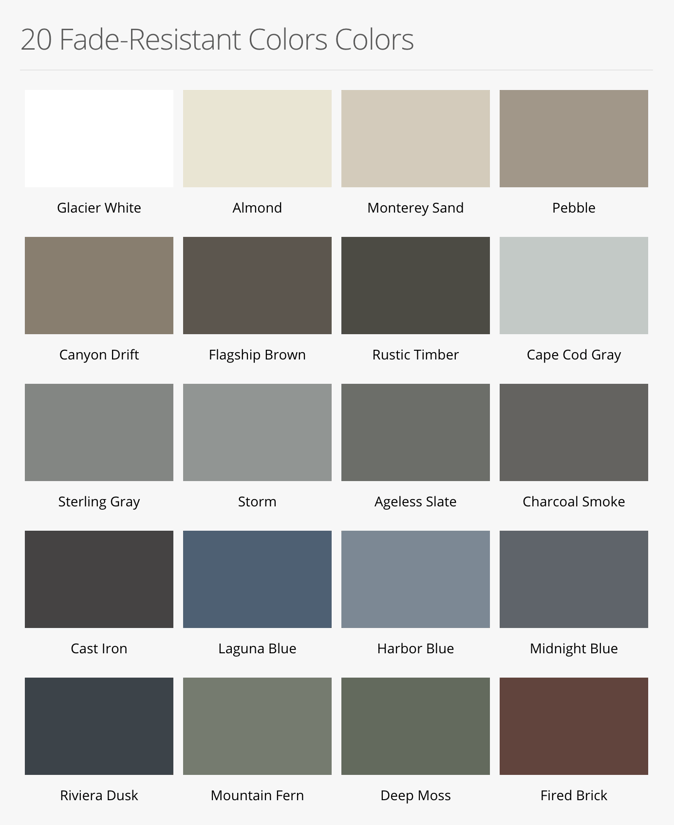A Guide to Choosing the Perfect Siding Color for Your Home
Choosing the right siding color for your home can be a daunting task. After all, the color of your siding plays a significant role in the overall aesthetic appeal and curb appeal of your home. Whether you're looking to refresh the look of your current home or selecting siding for a new construction, the color you choose can make a big difference in the final outcome. Here are some tips to help you navigate the process and choose the best siding color for your home.
-
Consider Your Home's Architectural Style:
The architectural style of your home can provide valuable clues about which siding colors will work best. For example, a traditional colonial-style home might look best with classic, neutral colors like white, beige, or gray. On the other hand, a modern home might benefit from bold, contemporary colors like deep blues or charcoal grays. Take cues from the existing architectural features and choose a siding color that complements them.
What is my home's architectural style? https://99percentinvisible.org/article/style-house-visual-guides-domestic-architectural-designs/
-
Think About the Surrounding Environment:
Consider the natural surroundings of your home when choosing a siding color. Are you surrounded by lush greenery, sandy beaches, or snowy landscapes? Opting for a siding color that harmonizes with the environment can help your home blend in seamlessly with its surroundings. Earthy tones like greens, browns, and tans work well in natural settings, while brighter colors may stand out more in urban or suburban environments.
-
Take Into Account the Climate:
The climate of your location can also influence your siding color choice. If you live in a hot climate, lighter colors can help reflect sunlight and keep your home cooler. In colder climates, darker colors can absorb heat and contribute to warming your home. Additionally, consider how well the color will hold up to the elements over time. Lighter colors may show dirt and grime more easily, while darker colors can fade in intense sunlight.
-
Assess the Size and Shape of Your Home:
The size and shape of your home can impact how certain siding colors appear. Dark colors tend to make a home look smaller, while lighter colors can make it appear larger. If you have a tall, narrow home, choosing a lighter siding color can help balance its proportions. Conversely, if you have a sprawling ranch-style home, darker colors can add depth and richness to its appearance.
-
Test Samples Before Committing:
Before making a final decision, it's essential to test out samples of your chosen siding colors. Most siding manufacturers offer sample swatches that you can order to see how different colors will look on your home. Take these samples outside and view them at different times of the day to see how they appear in varying lighting conditions. Additionally, consider how the siding color will complement other exterior elements like your roof, trim, and landscaping.
Looking for some siding color options? https://www.alside.com/products/siding/siding-color-collection/

In conclusion, choosing the best siding color for your home involves considering factors such as architectural style, surrounding environment, climate, size, and shape of your home, and testing out samples before making a final decision. By taking the time to carefully evaluate these factors, you can select a siding color that enhances the beauty of your home and creates a lasting impression for years to come.
.png?width=153&height=69&name=Untitled%20design%20(30).png)
Reimagine Your Remodel
LOCK IN YOUR PRICING TODAY WITH A FREE INSPECTION AND QUOTE
February 28, 2024
.png?width=175&height=79&name=Untitled%20design%20(30).png)
.png?width=125&height=125&name=Untitled%20design%20(24).png)
.png?width=125&height=56&name=Untitled%20design%20(30).png)